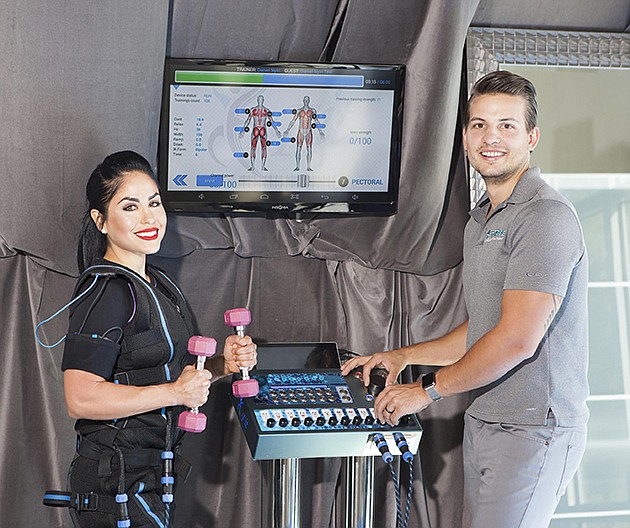- November 23, 2024
-
-
Loading

Loading

Since Daniel Nyiri was a little boy, he's had big, hairy audacious goals. When he was 14 and started playing hockey, his coaches told him to burn his equipment because he was so bad. Less than a decade later, the Hungarian native was in the United States as a professional hockey player.
At age 22, when he was injured right around the time of the National Hockey League player lockout, he set another goal. Nyiri wanted to start his own business. The problem was he had $250 to his name and his English was shaky at best. The only hard asset Nyiri had was a beat up Mustang, with no license plate or insurance. By some stroke of luck, he made the drive from Chicago to Florida without getting pulled over.
Nyiri immediately started working five jobs at once: coaching kids hockey, personal training, modeling, bartending and serving food. “If people are comfortable being an entrepreneur, they're not an entrepreneur,” Nyiri says. “I didn't care about going out, I just had a goal in mind.”
He wanted to open his own gym.
Today, at 27, Nyiri has accomplished that goal. He runs two fitness studios, one in South Tampa and one in downtown St. Petersburg. He's working on opening a location in Brandon and another in Chicago by March 2017. He's also working to launch a franchise model to supplement a licensing deal he has in place for his proprietary equipment, the Electric Muscle Stimulation (E-Fit) machine.
The E-Fit machine looks a bit like something from the “Terminator” — participants get in a full body suit with electrodes connected to specific muscle groups. It allows the trainer to send electrical impulses to contract and relax the muscles while the trainee is completing the workout. Because the electric stimulation adds intensity to a typical workout, it is recommended that users do only a 20-minute workout two to three times a week with the machine. One session costs between $55 and $65.
Using electric muscle stimulation technology isn't a new thing. In Europe, it's a hot new trend, with professional athletes like Usain Bolt using similar technology for training. NASA and Russians federal space agency also use the technology to train astronauts.
It took three years for Nyiri to win approval from the Food and Drug Administration for his E-Fit machine, but Nyiri says it was worth the wait. Last year, Nyiri made $350,000 selling the machines and $210,000 from his 4U Fitness studio in Tampa. In the past three months, the studios' profits have doubled. Now the studios' annual revenue is near $500,000, with an expectation to reach $1.2 million in March.
“Right now, we are the only ones” with this technology in the states, Nyiri says. That's why the company is focused on franchising to control the market. Three years ago, when Nyiri went to the largest fitness expo in Germany, there were three companies using the technology. This year, there were more than 20. But Nyiri isn't worried about competition in the U.S. for the next few years because of how long the FDA approval process took.
“It was a hard sell at first,” Nyiri admits. Women tend to be more open to trying the new technology, while men shrug it off as the next “ab band.” But after men see their wives coming home with results, feeling more sore than normal, they agree to give it a shot. “Once they try it, they're hooked,” Nyiri says. Today, 70% of his fitness studios' business uses the technology.
Nyiri is working on his next big goal — changing the way people feel about fitness. “By the time our kids grow up, when they think fitness, they won't think crazy hours in a gym, tons of cardio, crash diets ... instead of all of that crap,” they'll know there's an easier, healthier way, he says.